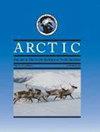到2050年俄罗斯北极:发展综合方案
IF 0.8
4区 地球科学
Q4 ENVIRONMENTAL SCIENCES
引用次数: 3
摘要
由专家和利益相关者小组创建的北极未来发展路径情景是根据预期的环境和社会经济变化确定和说明该地区可能的替代方案和备选方案的有效途径。尽管评估北极发展轨迹的设想正变得越来越流行,但在专门针对俄罗斯北极的前瞻性演习中,相对缺乏区域视角。本文介绍并讨论了俄罗斯北极地区到2050年的发展情景,这些情景是在俄罗斯Naryan-Mar的情景研讨会上由不同的学者、地方官员、土著领导人和商业代表组成的。这些情景集中在俄罗斯的北极地区,并纳入了未来经济发展的愿景,与西方和中国的国际合作,航运,人力和社会资本,以及气候变化背景下土著人民的生计。我们采用了一种新颖的圆轴技术,将最初创建的12个主题情景综合并组合成四个最终的交叉综合情景,这些情景描述了到2050年俄罗斯北极的替代未来:和谐北极、自力更生的北极、资源依赖的北极和被遗忘的北极。本文章由计算机程序翻译,如有差异,请以英文原文为准。
The Russian Arctic by 2050: Developing Integrated Scenarios
Scenarios of future development pathways in the Arctic created by groups of experts and stakeholders are an effective way to identify and illustrate possible alternatives and options for this region based on anticipated environmental and socioeconomic changes. Although scenarios that assess development trajectories for the Arctic are becoming increasingly popular, there is a relative lack of regional perspective in foresight exercises devoted to the Russian Arctic. This article presents and discusses development scenarios for the Russian Arctic until 2050 that were built by a diverse group of academics, local officials, Indigenous leaders, and business representatives at a scenario workshop in Naryan-Mar, Russia. The scenarios focus on Russia’s Arctic zone and incorporate future visioning of economic development, international cooperation with the West and China, shipping, human and social capital, and Indigenous peoples’ livelihoods in the context of climate change. We apply a novel circular-axial technique to synthesize and combine the 12 initially created thematic scenarios into four final cross-cutting integrated scenarios that describe alternative futures for the Russian Arctic by 2050: Harmonious Arctic, Self-Reliant Arctic, Resource-Dependent Arctic, and Forgotten Arctic.
求助全文
通过发布文献求助,成功后即可免费获取论文全文。
去求助
来源期刊

Arctic
地学-环境科学
CiteScore
2.30
自引率
0.00%
发文量
51
审稿时长
6-12 weeks
期刊介绍:
Arctic is a peer-reviewed, primary research journal that publishes the results of scientific research
from all areas of Arctic scholarship. Original scholarly papers in the physical, social, and biological
sciences, humanities, engineering, and technology are included, as are book reviews,
commentaries, letters to the editor, and profiles of significant people, places, or events of northern
interest
 求助内容:
求助内容: 应助结果提醒方式:
应助结果提醒方式:


